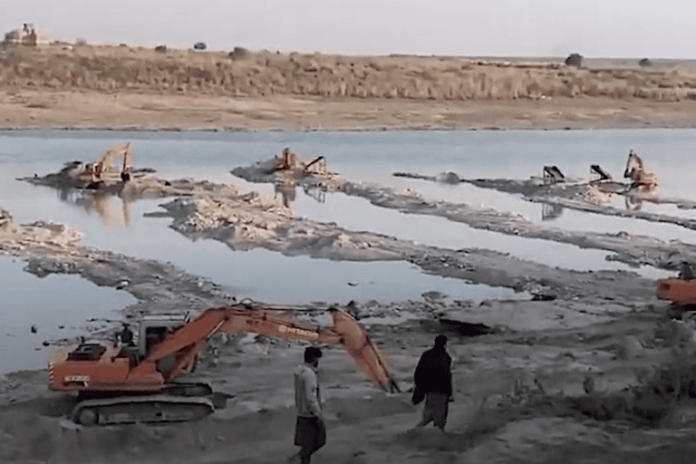The National Accountability Bureau (NAB) has identified major irregularities in the auction and extraction of placer gold along the Indus and Kabul rivers in Khyber Pakhtunkhwa. The bureau expressed concerns over underpriced gold blocks and illegal practices that have reportedly cost the province trillions of rupees, The News reported.
Official documents indicate that leaseholders are subletting operations and charging between Rs500,000 and Rs700,000 per excavator each week, generating estimated weekly earnings of Rs750 million to Rs1.05 billion, while government revenue remains minimal.
NAB has also flagged violations during gold exploration, including lack of environmental assessments, failure to obtain NOCs, improper use of mercury, and employment of unskilled labour.
Chief Minister Ali Amin Gandapur said his government auctioned gold blocks at higher rates than in the past, fixing a minimum price of Rs1.10 billion per block and selling four blocks for around Rs4.6 billion for ten years. He added that the auction complied with legal requirements and was overseen by NAB officials. The CM emphasised that operations continue to curb illegal mining.
NAB’s inquiry, presented at a high-level meeting on August 7 attended by provincial officials, revealed that reserve prices were miscalculated. Studies by the National Centre of Excellence in Geology from 2015, which identified gold reserves ranging from 0.21 to 44.15 grams per ton, were ignored.
The 2022 geological mapping project for new mineral resource estimates was halted in November 2023 for placer gold, raising concerns of deliberate concealment.
Documents also show that despite delays exceeding months, contracts and allotment letters were issued, and mining operations continued in November 2024 even under a Peshawar High Court stay order. NAB said leaseholders failed to follow KP Auction Rules 2022, did not submit production or sales records, and did not install required processing plants.
According to NAB, more than 1,500 excavators operate illegally, with leaseholders earning massive weekly profits while the provincial government receives only a token amount.




